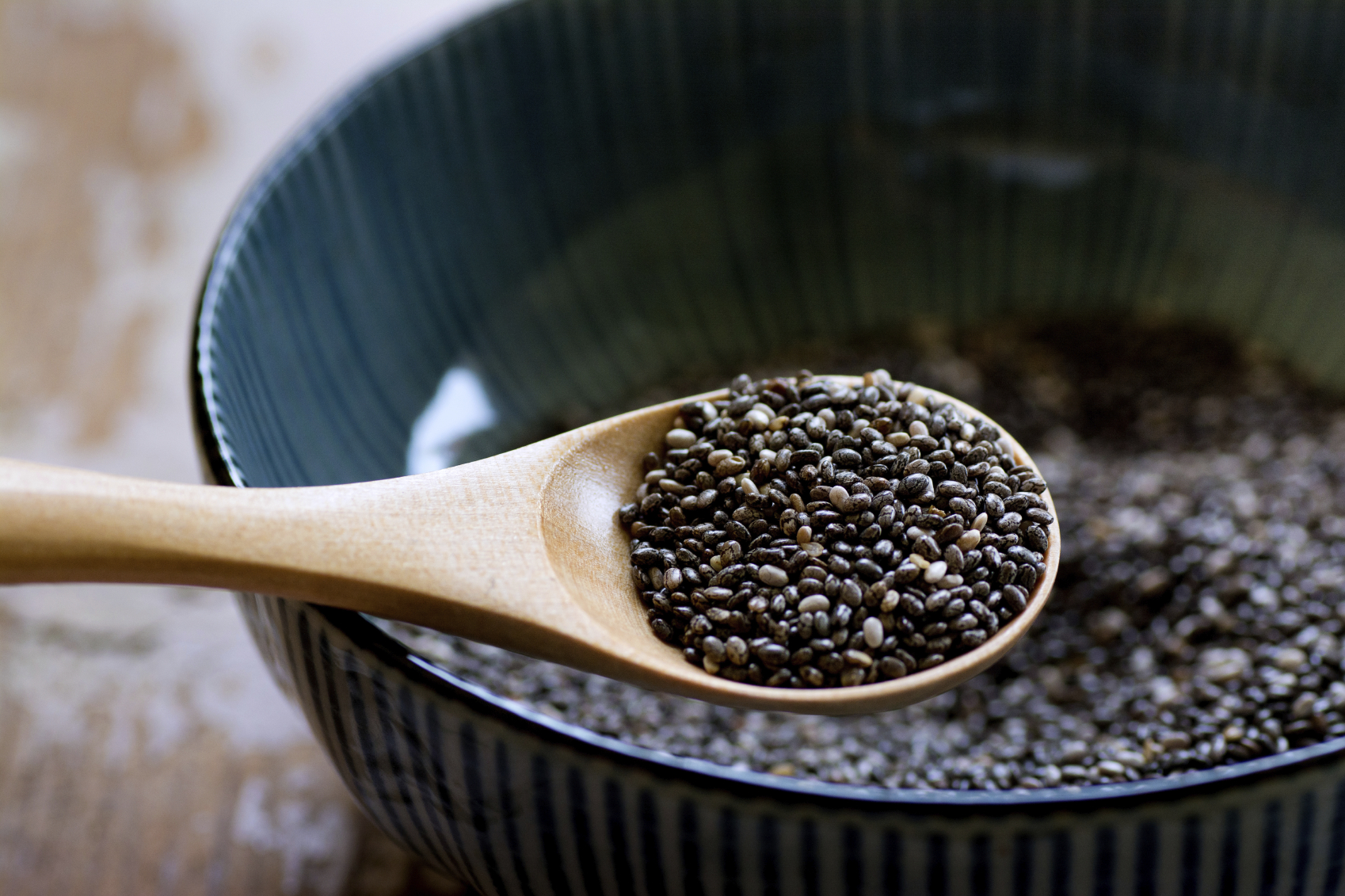We’ve told you before that these small seeds may help prevent and manage type 2 diabetes. And they do more than prevent blood sugar spikes.
The same research shows that in people who already have type 2 diabetes, chia seeds can lower systolic blood pressure (SBP) by 6.3% in 12 weeks. They also help reduce C-reactive protein (CRP) levels—a measure of inflammation in your body—by up to 40%.1
That’s a big deal.
According to the American Heart Association, the best indicator of cardiovascular disease (CVD) risk is a high CRP level. It’s an even better measure than LDL cholesterol. That’s because people with higher CRP levels have up to three times greater risk for CVD.
But even if you don’t have type 2 diabetes, eating chia seeds may help you prevent CVD.
They can double the amount of alpha-linolenic acid (ALA) in your blood.2
Your body converts ALA into eicosapentaenoic acid (EPA). It’s one of the essential fatty acids (EFAs) that make fish oil a powerful weapon for fighting inflammation. One study found that postmenopausal women who ate about two tablespoons every day for seven weeks increased the amount of EPA in their blood by 30%. But that’s nothing compared to ALA: They raised those levels as much as 138% by the end of the study.3
Getting enough EFAs is one of the best ways to lower your risk for CVD. And it’s still not even the only way eating chia seeds can help protect your heart.
Chia seeds are also rich in soluble fiber. One ounce provides you with about 11 grams of soluble fiber.4 Researchers in the UK found that for every seven grams of fiber you eat per day, you can lower your risk of CVD by up to 9%.5 Not bad for a tablespoon of chia seeds. But there’s a problem…or more accurately, a misunderstanding.
Many people think it’s a grain—not a seed. But according to Dr. Wayne Coates—the man they call “Mr. Chia”—chia is not a grain. They are seeds.6 This makes them Paleo-friendly. But it’s foods they can show up in—like wraps and baked goods—that can be a problem.
They don’t make a great snack on their own…but you can add chia seeds to just about any meal. Try mixing them into a salad for extra flavor and texture. Including them in a smoothie or protein shake is a smart way to add healthy fat and fiber. But be warned: Chia seeds will thicken whatever drink you put them in, so start small.
You can find organic chia seeds in most health food stores and online. Those same retailers may also sell supplements. But it’s much more satisfying—and beneficial—to add them to a meal or shake than pop a pill or two. Chia seeds are a safe, natural way to help lower your risk for CVD. But they’re not your only option.
Some brave doctors are finally telling the truth about what really causes—and treats—heart disease. Like the natural supplement a Mayo Clinic professor prescribes to all his heart patients…and the natural nutrient from fruit shown to lower cholesterol safer than a popular prescription drug.
Discover all the details on these and more, HERE.
Like this Article? Forward this article here or Share on Facebook.
References:
1http://www.ncbi.nlm.nih.gov/pubmed/17686832
2http://www.greenmedinfo.com/blog/ancient-chia-seeds-reduce-modern-heart-disease-risk1
3http://www.ncbi.nlm.nih.gov/pubmed/22538527
4http://www.huffingtonpost.ca/2013/07/09/flax-vs-chia_n_3567261.html
5http://www.bmj.com/content/347/bmj.f6879
6http://drwaynecoates.blogspot.com/2012/02/chia-seed-or-grain.html

